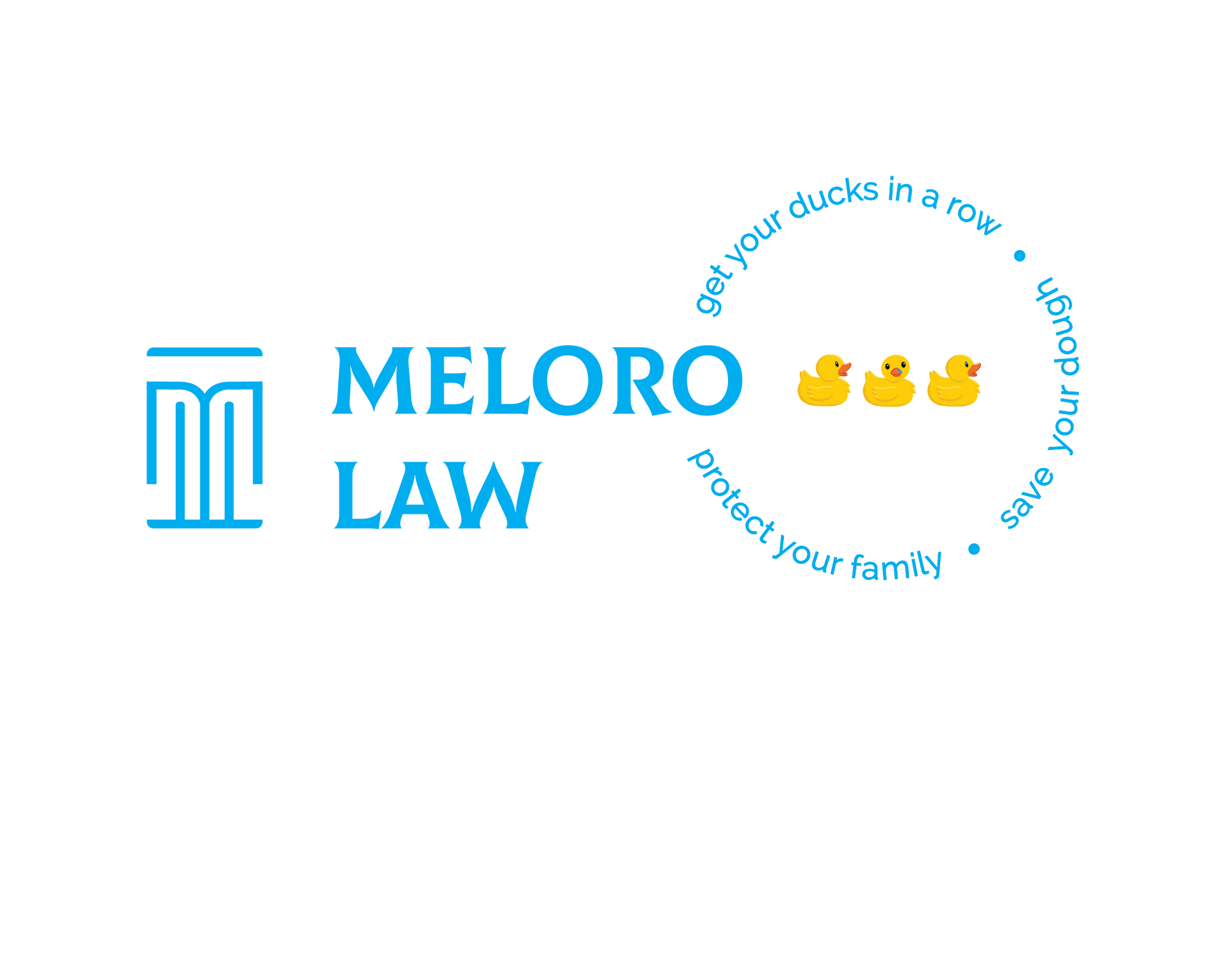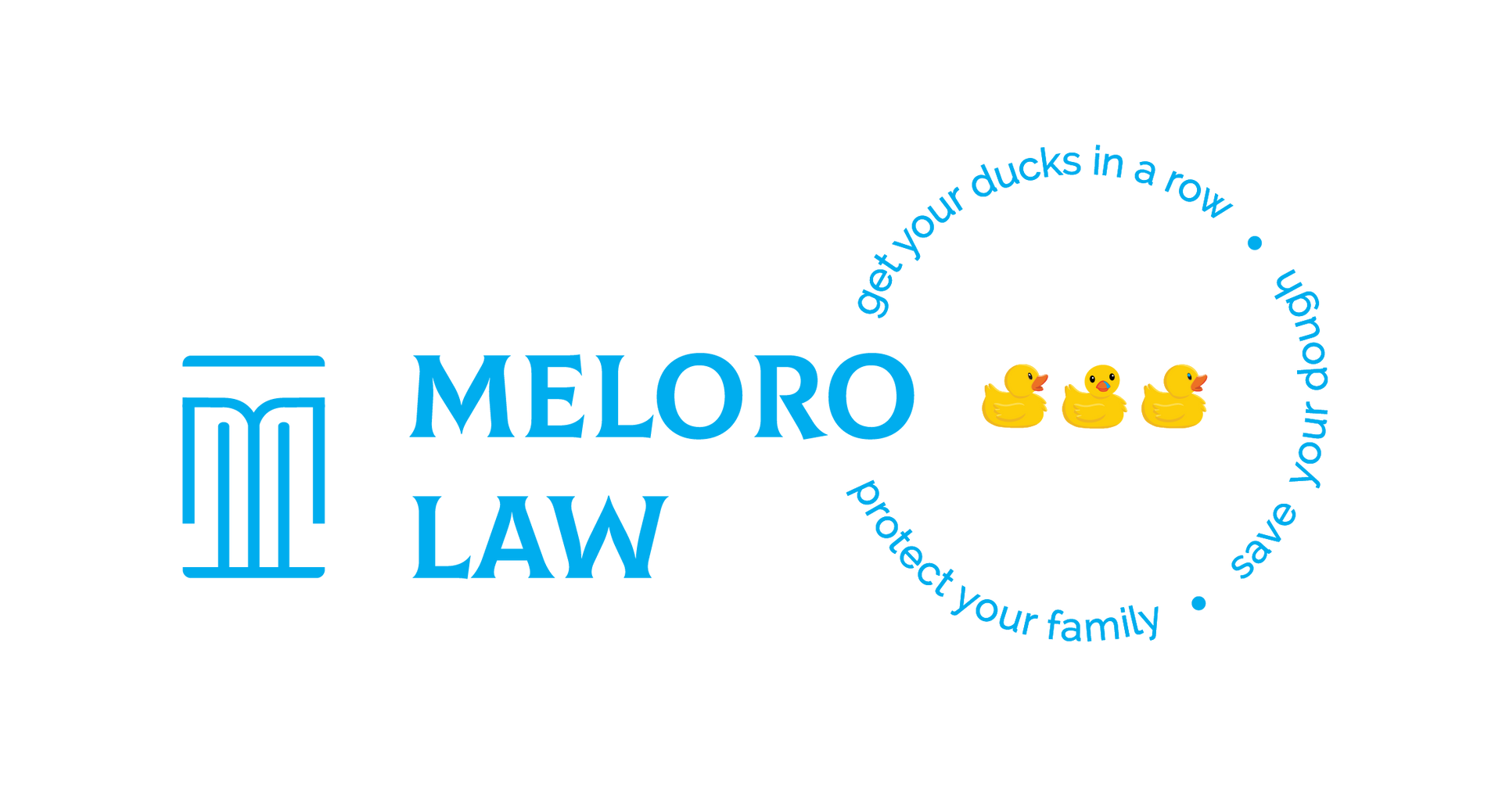Client Login
×|
Blog
MELORO LAW
Meloro Law, Creative Solutions and Lifetime Planning to Protect You, Your Loved Ones, and Your Assets
|
What You Need to Know About Florida Probate and How to Avoid It
There is no question navigating the complexities of estate planning can be a daunting task for many Floridians. With an array of legal tools and strategies at your disposal, understanding how each element fits within your estate plan is crucial and we are here to help. When we discuss these with our clients, the concept of probate often emerges as a central point of concern.
What is probate? Probate is the legal process through which your assets are distributed after your death and it can be lengthy, costly, and lack privacy. What many do not realize, however, is that this process can often be minimized or altogether avoided with proper planning and foresight.
It is important to know that in Florida, as in many states, a last will and testament, while an essential part of any estate plan, does not exempt your estate from going through probate. In fact, it guarantees it. This is because assets solely owned by you at the time of your death need to be officially transferred to your beneficiaries through the probate court. While this might sound straightforward, probate comes with its own set of challenges that can impact your loved ones long after you are gone.
But there is good news. By understanding the intricacies of Florida's probate process and exploring the estate planning tools available to you, such as trust agreements, you can take significant steps toward safeguarding your assets and ensuring they are passed on according to your wishes, without unnecessary interference from the courts.
While having a will is better than having no estate plan at all, it is crucial to understand that a will serves as a one-way ticket to the probate court. The probate process is designed to ensure your will is authenticated, debts are paid, and assets are distributed according to your wishes. Unfortunately, probate is often costly, public, and time-consuming. The costs associated with probate can significantly diminish the value of the estate you leave behind, as legal fees, court costs, and other expenses are taken from the estate's assets. Furthermore, probate proceedings are a matter of public record, meaning the details of your estate can become accessible to anyone. This lack of privacy can be concerning for many families. Moreover, probate can be a lengthy process, sometimes taking months or even years to conclude. This delay can place a burden on your loved ones, both emotionally and financially.
Fortunately, there is a way to avoid the pitfalls of probate: establishing a trust agreement. Unlike a will, a trust allows you to retitle your assets to the trust itself, effectively ensuring that these assets are no longer owned solely by you at the time of death. This retitle of assets means that upon your passing, the distribution of these assets can occur outside of probate, under the terms you have set forth in the trust agreement. Trusts offer a more private, efficient, and often less costly way to transfer assets to your beneficiaries, which means your loved ones can avoid the public scrutiny, expense, and delays associated with probate.
It is also important to note what happens if you do not have an estate plan: the state has one for you, known as the intestacy statute. If you die without an estate plan, your assets will be distributed according to this statute, which may not align with your wishes. This one-size-fits-all approach does not consider your unique family dynamics or your personal preferences for asset distribution.
Keep in mind estate planning is not just for the wealthy; it is a necessary step for anyone who wishes to ensure their assets are distributed according to their wishes, without the unnecessary burden of probate. By understanding the implications of Florida's probate process and utilizing tools like trust agreements, you can provide a more secure, private, and efficient inheritance for your loved ones. Choosing to meet with an experienced Florida estate planning attorney can also help you navigate these decisions and create a plan that best suits your needs and goals.
We know how confusing these conversations can be and want to help. Do not wait to contact our law practice to learn more today. We encourage you to contact us and schedule a meeting to get your ducks in a row. To learn more about Meloro Law and how we can help you when you need legal representation for estate planning or elder law issues do not wait to call us today.
The post What You Need to Know About Florida Probate and How to Avoid It appeared first on Meloro Law.
Contact Us
CONTACT
Main Office
8551 W Sunrise Blvd, Suite 300
Plantation, FL 33322
Broward County
Palm Beach, St. Lucie and Martin Counties


